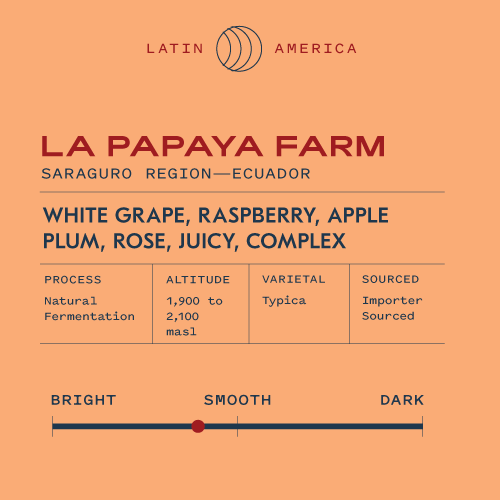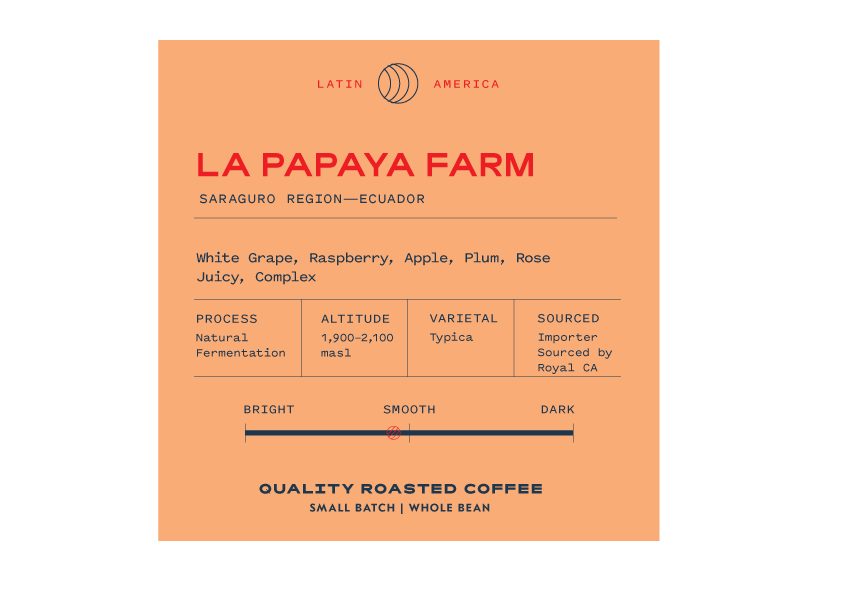La Papaya Farm, Ecuador - Natural Fermentation (2022)


La Papaya Farm, Ecuador - Natural Fermentation (2022)
Country: Ecuador
Region: Saraguro Region
Processing: Natural Fermentation
Farmer: Juan Peña
Elevation: 1900 - 2100 masl.
Varietals: Typica
Sourcing: Importer Sourced by Royal Coffee CA
Our Cupping Notes:
Wow. Fruit, floral, complex, and juicy. White grape, raspberry, mango, plum, nectarine, and apple. Hints of baking spice, rose, and chocolate on the nose and in the finish.
We purchased this lot from our importing partner, Royal Coffee California. They brought in several lots from the famed La Papaya Farm in Ecuador run by Juan Peña. This is one of those coffees you’ll taste and think about a decade later. It’s thought provoking and complex, but equally delicious and drinkable. From Royal: “This is Royal Coffee’s first season working with Juan Peña and his farm Hacienda La Papaya in the Loja province of southern Ecuador. With Peña’s reputation for crafting exceptional coffees (he holds three consecutive “Sprudgie” Notable Producer awards), expectations were extremely high and I’m thrilled to say the coffee delivers on every level.
Hacienda La Papaya is just 28 acres in size but benefits from high elevation and good microclimates. Located 20km away from Saraguro toward the Andes, the project started in 2009 with planting in 2010. Overseen by Peña, who holds a degree in agronomy, the farm is outfitted with drip irrigation for each of its 35,000 trees.
Juan’s strategy has always been to keep researching and growing with technology. The farm has an agreement with Cuenca’s University and Juan personally considers Hacienda la Papaya not only a Centro de Producción, but also a center of investigation with disciplinary teams such as agronomics, baristas, and cacao farmers. “We experiment with chemistry and I’m pretty sure that we have the best quality control, with sensors on harvest, developing of fertilizer, and drying rooms” Juan Says.
Hacienda la Papaya employs 7 permanent workers. During the four months of harvest, they hire up to 40 additional workers. It’s a source of formal employment, because those who work on the farm have social security. It’s the only business that provides formal employment in the zone. All the workers are from the community. Eighty percent are women, and most workers have families with kids. Also, during the months of school vacation, high school students work on the farm as well because it coincides with the months of harvest.”
